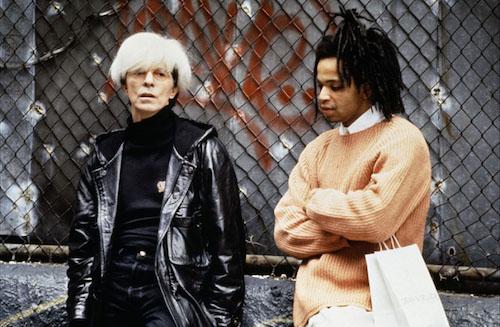
In the film Basquiat, Christopher Walken asks Jeffrey Wright, who plays the title character Jean-Michel Basquiat, "Do you consider yourself a painter or a black painter?" Wright replies, "Oh, I use a lot of colors, not just black." Recently, my son Jeffrey, who is named after Wright, said, "Mom, you are one of the best-known disability poets!" This made me cranky, or crankier than usual. This made me think about something I have considered many times. How does the identity and circumstance of a poet qualify or change their work? In my case, am I a disabled poet or just a poet?
There are two different things at work here. The first is writing about one's particular experience that absolutely and urgently needs to be heard. So-called "identity poets" are poets of long-oppressed groups writing about long-suppressed issues.
The second step is putting a poet's experience, and sometimes the literal body, into a "category" where one becomes an "identity" in order to be eligible for certain grants, funding, and/or publications. In the process, a poet becomes somewhat reduced to a label. Certainly, we need these specific resources for "outsiders" to counter the compulsion to give white, able-bodied, cis men and women all the loot. However, some find this problematic and unfair. There is resistance toward othered people who enact their identities in order to speak, to write, to publish, or get teaching jobs. The rallying cry is that the "work" will suffer. Poetry "should be" based on its own merits and nothing else.
Yet, we don't use those labels for other categories and even more powerful identities. Some of these might include "They are a good looking poet." "They got into Iowa because their family donated money and therefore, they have a good teaching job even though they don't have a book out" poet. Of course, there is the ubiquitous "Yale poet" and the "They are really charming and able to socialize in a way that I am not because I am weird and shy" poet. The "my mother-in-law was Katherine Graham" poet and the infamous "I wrote a purposefully controversial work about race so now I'm totally famous" poet. Then, of course, we have the white, cis, heterosexual male poet whose ticket to ride is implied. Aren't all identities something that get in the way of a "good poem?" If so, let's go all New Criticism on everyone! I am suggesting that all grants, magazines, and teaching jobs make their choices through the poem only. It's a radical idea. Let's take the privilege out of poetry. Let's not make where a poet got an MFA part of their biography. Poets, teachers, and influences are entirely relevant; the Ivy League status of their school is not.
This is never going to happen, and not only because so many people have varying ideas of good poetry, but because publishing is always going to be based on a number of outside factors, mostly the editor's mood and how the stars are aligned, and yes, who we are. It's unavoidable.
In the end, this is an argument for identity poetry. In my direct action group, #Rise and Resist, part of the group's practice is to ask people who usually get to "speak" to step back and for those who have been traditionally silenced to step forward. The idea is that we work as a group to even out the voices.
In the long run, there is a very crucial and beautiful case to be made for "identity poetry." Anyone can write a poem. Most anyone can publish a poem. Anyone can start an online magazine. Most readers can write to most poets and get a serious answer and a serious conversation. Writing poetry may seem like a middle-class luxury, and almost no one is going to win the Pulitzer Prize. However, most people can't write or publish a novel (time and luck), or make visual art (time and money), or be in a play or on television.
In order to write a poem one needs an idea, something to write on (a paper towel will do) and a pen or pencil. In order to publish a poem or the poems of others, all one needs is to access to the internet. Do not mistake it, the poet will probably have more readers if they post a poem on Facebook than publishing it in “X” review, and the pay will be the same.
Publishing and awards are never going to make our voices equal. But, writing a poem will and does.
Jennifer Bartlett’s most recent book is Autobiography/Anti-Autobiography (theenk Books, 2014). Bartlett…
Read Full Biography

